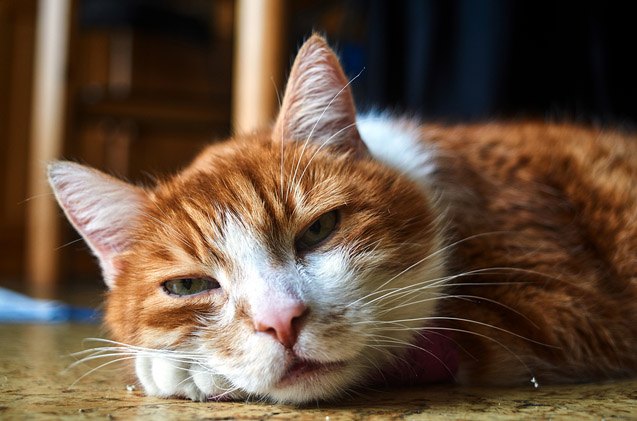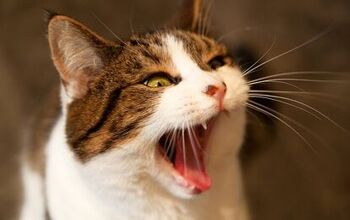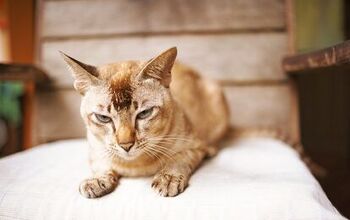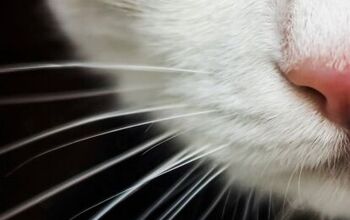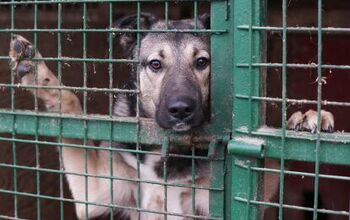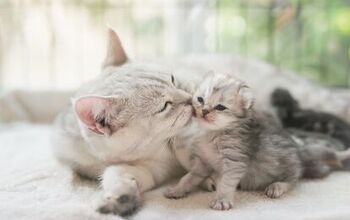Feline Health: Symptoms You Shouldn’t Ignore

Don’t write off your cat’s unusual behavior as a cry for attention – it could be a cry for help! Be aware of these symptoms that could signal a health problem.
When it comes to giving your pet the best care possible, you need to go beyond environmental enrichment and nutrition and also be aware of symptoms that you shouldn’t ignore. By keeping an eye on your cat’s behavior and taking the time to understand his habits and preferences, you may be able to more easily detect when something is wrong. And this is important because some health issues might progress quickly or their symptoms might not be immediately apparent.
Cats Can Exhibit a Variety of Symptoms
It’s necessary to keep in mind that the signs and symptoms that your furry friend isn’t feeling well can vary in severity, and some might be easier to pick up on than others.
There are certain signs of health problems that are pretty obvious, such as a lump that won’t go away, difficulty using the litter box, or frequent vomiting or diarrhea. In those cases, you already know that a trip to the vet is required. But there are other, less obvious signs that something might be wrong, and these are the symptoms that you should be aware of, just in case they occur.
Again, spending plenty of time with your cat and getting to know him really well could make it less challenging to figure out when he might not be feeling his best. So, don’t just put food out for your cat and mostly ignore him aside from some short cuddle sessions. Instead, learn his habits throughout the day, keep an eye on how long and how often he likes to nap, figure out what his favorite spots in the house are, and watch his activity level, appetite, and weight, as a few examples. That way, if you start to see that your cat isn’t acting like he normally does, you can take a closer look to figure out what might be causing the changes.
Keep in mind, too, that the sooner you start looking into the cause of your pet’s symptoms or changes in behavior, even if they are minor, the sooner you can take steps to help him feel better. So, this is yet another reason why it’s a great idea to get to know your kitty as a unique individual.
Related: 5 Reasons Why Your Cat May Be Losing Weight
Strange Symptoms and Behaviors That Should Be Addressed Right Away
Some of the signs that your cat might be dealing with a health concern are quite strange, as you will see below. Anytime your cat isn’t acting like himself, it’s wise to work with your veterinarian to be sure your pet doesn’t need any treatments to restore his health.
If you notice your cat exhibiting any of the following symptoms of illness, it is really important that you take him to the veterinarian right away to receive a proper diagnosis and necessary treatments, as these might indicate that something serious is going on.
Head Pressing
Head pressing is a symptom that’s characterized by compulsively pressing the head against an object, such as a wall, without any real reason for doing so. In other words, you may find your cat putting his head against the wall and remaining there for a period of time. Cats who exhibit this strange symptom should be seen by a vet right away, as it is generally an indication of nervous system damage.
Causes for head pressing are varied and can include toxic poisoning or prosencephalon disease, which involves damage to the thalamus and forebrain. Other causes include metabolic disorders like hyponatremia or hypernatremia, a tumor in the brain or elsewhere in the pet’s body, and infections within the nervous system, such as a fungal infection or rabies. Head trauma could also be the culprit.
It’s important to be aware that head pressing may be accompanied by other symptoms when prosencephalon is to blame. These include seizures, visual ailments, damaged reflexes, changes in behavior, and compulsively circling or pacing that could even lead to sores on the paws. Head pressing could also result in injuries to the head and face if your cat spends a long time with his head against a surface.
Your vet will thoroughly examine your cat and determine the cause of the head pressing so that the proper treatment can then be administered.
Related: What Is Feline Whisker Fatigue?
Hanging Head Over Water Bowl but Not Drinking
Your cat should not have any trouble drinking water out of his bowl. So, if you notice that your cat is hanging his head over his water bowl without actually drinking, it’s time for a visit to the vet, as this could be an indication of kidney disease or diabetes. Don’t just ignore this, thinking it’s merely your kitty being a little odd. Instead, get answers from your vet so you can be sure your pet is fine.
Why is this a symptom you shouldn’t ignore? When your cat behaves in this manner, it likely means that he’s extremely thirsty and wants to drink, but he is also feeling too nauseated or sick to drink. Your vet will be able to examine your pet and determine the cause of this behavior so that you can start providing the right treatments right away.
Increased Thirst and Urination
Staying properly hydrated is just as necessary for your kitty’s overall health as it is for yours. Therefore, your pet should always have easy access to fresh, clean water in case he gets thirsty throughout the day and night, and you can also consider feeding your cat a high-quality wet food that provides plenty of moisture if you aren’t already doing so. Beyond that, keep an eye on how much your kitty is drinking and if there are any signs of increased thirst and/or urination.
It may be a little difficult, but try to keep track of how much your cat typically drinks and how much he urinates so you can note if there are any changes. In the event that you do notice changes, discuss them with your veterinarian as soon as possible because these symptoms might be the result of health concerns that need to be addressed right away.
If your cat is drinking and urinating more than usual, you shouldn’t ignore these symptoms, as they are associated with diabetes and kidney disease, which is progressive and needs to be treated as soon as possible. Other congenital abnormalities, such as psychological ailments or a reduction in steroid production by the pet’s adrenal glands, may also cause these symptoms.
Your vet will also be able to determine if the increased thirst and urination are the result of a diet that’s low in protein, aging, or medications that your cat is taking, so it’s important to rule out serious causes by having your pet examined.
See a Vet If You Think Something Is Wrong with Your Cat
In addition to monitoring your cat’s weight, appetite, and behavior, keeping an eye out for the symptoms above is important, as they could be the first indicators that something is wrong and that your pet needs to be seen by a vet as soon as possible to receive treatments to get better. Ultimately, if anything seems amiss or different about your pet, a trip to the vet is warranted, as even small changes might indicate underlying medical problems.

Lisa Selvaggio is a freelance writer and editor, and our resident cats-pert, with certifications in pet nutrition and pet first aid. She enjoys producing content that helps people understand animals better so they can give their pets a safe and happy home.
More by Lisa Selvaggio



